Photo

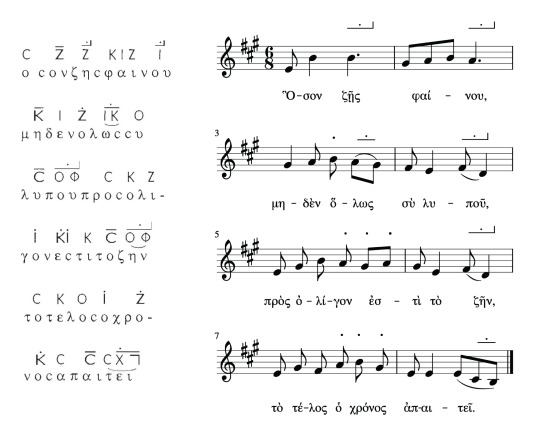
The Seikilos epitaph is the oldest surviving complete musical composition, including musical notation, from anywhere in the world. The song, the melody of which is recorded, alongside its lyrics, in ancient Greek musical notation, was found engraved on a 1st or 2nd century CE tombstone (a stele) from the Hellenistic town of Tralles near present-day Aydın, Turkey, near Ephesus. While older music with notation exists (for example the Hurrian songs), all of it is fragmentary; the Seikilos epitaph is unique in that it is a complete composition. The inscription is translated below:
“While you live, shine
have no grief at all
life exists only for a short while
and Time demands his due.
I am a tombstone, an image. Seikilos placed me here as a long-lasting sign of deathless remembrance.”
You can listen to a recording of the Seikilos Song here: https://youtu.be/9RjBePQV4xE
1K notes
·
View notes
Text

Técnica: Modelado
Provenience unknown, possibly looted
MNA
16 notes
·
View notes
Text
man the byzantines were really off the shits when it came to mosaics. i've been staring at the medaba floor mosaic for like 20 minutes because it's so gorgeous and detailed. like look at this thing. this is a MAP. a MOSAIC MAP from the 6TH CENTURY AD with LABELS in GREEK. i want to touch it. i want to eat it. it's the sickest shit i've ever seen and it is a map. god damn
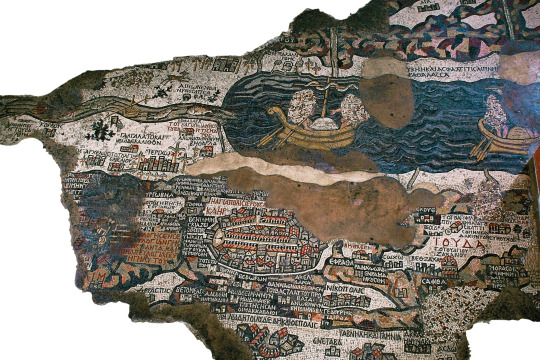
2K notes
·
View notes
Text
People are getting really mad about the last paragraph of this post, which I didn't think would be controversial.
I understand that Dune's intended message is anti-authoritarian. Herbert and Villeneuve have been perfectly clear about this. But I think it's interesting to question wether there is a disconnect between the intended message and the aesthetics of the film. Because the aesthetics are a part of the meaning conveyed by the film.
Take the movie 300: fascist message, fascist aesthetics (see Big Joel's wonderful video). What about a film which intends to be anti-fascist but adopts fascist aesthetics ? Wouldn't that detract from the intended message ? Wouldn't that send mixed signals to the audience ?
I'm not assuming people are stupid. I'm precisely assuming that they are intelligent enough to notice the disconnect between the intended message and the aesthetics.
A better way to "defend" Dune (if that's even necessary - reminder that you CAN enjoy problematic media) is to say that Dune intends to depict Paul's rise to power as ambiguous. Personally that's one of the many, many things I find so fascinating about Dune.
And to be clear: I love Dune and I've read the first two books when I was eleven, so gatekeeping me from the Dune fandom is... strange.
Thinking about the scene where Paul enlists the Southern Fremen in Dune part 2. I really love this scene, and, let's not kid ourselves, there's an element of power fantasy to it.
But there's something much sinister going on there. Paul specifically screams "I am Paul Muad'Dib Atreides, Duke of Arrakis". The mere fact of calling the planet Arrakis instead of its original Fremen name Dune, and the fact that he claims to be the legitimate Duke of the planet because he's the heir of House Atreides is an insult to Fremen independence. What he was allegedly fighting for this all time...
There's a consistent theme in this scene of Paul refusing to follow Fremen customs, like when he refuses to kill Stilgar and speaks anyway. Paul is doing that on purpose. He asserts his dominance by showing Fremen rules don't apply to him. He can dismiss anything he dislikes about their culture and remake it according to his will.
This scene shows simultaneously the crowning of Paul as a Fremen Messiah and the death of traditional Fremen culture. Paul is pursuing by other means what the Harkonens started.
What Paul is asking of (or rather demanding of) the Fremen, is that they join him in a revolution. But not a revolution towards more freedom, justice and equity. A revolution meant to create a society based around the supreme power of a tyrannical leader. And that's a central component of fascism.
Which can make us question the ethics of Villeneuve's film. This scene shows the birth of a fascist movement in a very epic and heroic light. The intended message of the film is clearly anti-authoritarian, but cinematography leaves much room for misinterpretation.
545 notes
·
View notes
Text
I've been watching The Terror for a few days and now I need a Captain's hat, a long overcoat with shining gold buttons, and a cure for severe lead poisoning
15 notes
·
View notes
Text
Thinking about the scene where Paul enlists the Southern Fremen in Dune part 2. I really love this scene, and, let's not kid ourselves, there's an element of power fantasy to it.
But there's something much sinister going on there. Paul specifically screams "I am Paul Muad'Dib Atreides, Duke of Arrakis". The mere fact of calling the planet Arrakis instead of its original Fremen name Dune, and the fact that he claims to be the legitimate Duke of the planet because he's the heir of House Atreides is an insult to Fremen independence. What he was allegedly fighting for this all time...
There's a consistent theme in this scene of Paul refusing to follow Fremen customs, like when he refuses to kill Stilgar and speaks anyway. Paul is doing that on purpose. He asserts his dominance by showing Fremen rules don't apply to him. He can dismiss anything he dislikes about their culture and remake it according to his will.
This scene shows simultaneously the crowning of Paul as a Fremen Messiah and the death of traditional Fremen culture. Paul is pursuing by other means what the Harkonens started.
What Paul is asking of (or rather demanding of) the Fremen, is that they join him in a revolution. But not a revolution towards more freedom, justice and equity. A revolution meant to create a society based around the supreme power of a tyrannical leader. And that's a central component of fascism.
Which can make us question the ethics of Villeneuve's film. This scene shows the birth of a fascist movement in a very epic and heroic light. The intended message of the film is clearly anti-authoritarian, but cinematography leaves much room for misinterpretation.
545 notes
·
View notes
Text
Thinking about the scene where Paul enlists the Southern Fremen in Dune part 2. I really love this scene, and, let's not kid ourselves, there's an element of power fantasy to it.
But there's something much sinister going on there. Paul specifically screams "I am Paul Muad'Dib Atreides, Duke of Arrakis". The mere fact of calling the planet Arrakis instead of its original Fremen name Dune, and the fact that he claims to be the legitimate Duke of the planet because he's the heir of House Atreides is an insult to Fremen independence. What he was allegedly fighting for this all time...
There's a consistent theme in this scene of Paul refusing to follow Fremen customs, like when he refuses to kill Stilgar and speaks anyway. Paul is doing that on purpose. He asserts his dominance by showing Fremen rules don't apply to him. He can dismiss anything he dislikes about their culture and remake it according to his will.
This scene shows simultaneously the crowning of Paul as a Fremen Messiah and the death of traditional Fremen culture. Paul is pursuing by other means what the Harkonens started.
What Paul is asking of (or rather demanding of) the Fremen, is that they join him in a revolution. But not a revolution towards more freedom, justice and equity. A revolution meant to create a society based around the supreme power of a tyrannical leader. And that's a central component of fascism.
Which can make us question the ethics of Villeneuve's film. This scene shows the birth of a fascist movement in a very epic and heroic light. The intended message of the film is clearly anti-authoritarian, but cinematography leaves much room for misinterpretation.
#very much agree !!#dune messiah is essential to understanding dune#but i've read it a long time ago too ^^
545 notes
·
View notes
Text
Thinking about the scene where Paul enlists the Southern Fremen in Dune part 2. I really love this scene, and, let's not kid ourselves, there's an element of power fantasy to it.
But there's something much sinister going on there. Paul specifically screams "I am Paul Muad'Dib Atreides, Duke of Arrakis". The mere fact of calling the planet Arrakis instead of its original Fremen name Dune, and the fact that he claims to be the legitimate Duke of the planet because he's the heir of House Atreides is an insult to Fremen independence. What he was allegedly fighting for this all time...
There's a consistent theme in this scene of Paul refusing to follow Fremen customs, like when he refuses to kill Stilgar and speaks anyway. Paul is doing that on purpose. He asserts his dominance by showing Fremen rules don't apply to him. He can dismiss anything he dislikes about their culture and remake it according to his will.
This scene shows simultaneously the crowning of Paul as a Fremen Messiah and the death of traditional Fremen culture. Paul is pursuing by other means what the Harkonens started.
What Paul is asking of (or rather demanding of) the Fremen, is that they join him in a revolution. But not a revolution towards more freedom, justice and equity. A revolution meant to create a society based around the supreme power of a tyrannical leader. And that's a central component of fascism.
Which can make us question the ethics of Villeneuve's film. This scene shows the birth of a fascist movement in a very epic and heroic light. The intended message of the film is clearly anti-authoritarian, but cinematography leaves much room for misinterpretation.
#i know this blog was originally about the crusades#but if i'm so interested in the crusades you won't find it surprising that i'm very much into dune
545 notes
·
View notes
Text
You've heard of "doomed by the narrative". Get ready for "doomed by the author's inherently neoliberal outlook on revolution and social change"
#yes this is about moash from the stormlight archive#i absolutely love the books and kaladin#but i talked about it with my brother and i understand why people are disappointed#stormlight archive
17 notes
·
View notes
Text
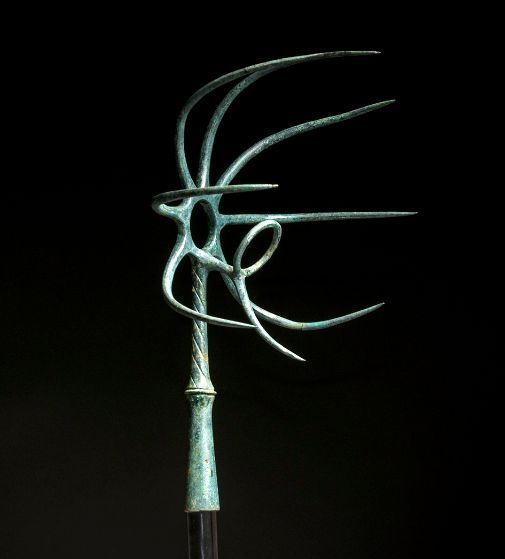
an underwater sponge collecting hook
Etruscan, circa seventh century BCE
5K notes
·
View notes
Text
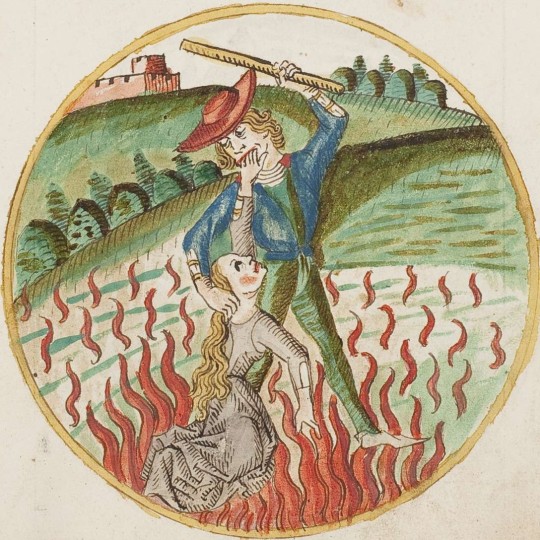

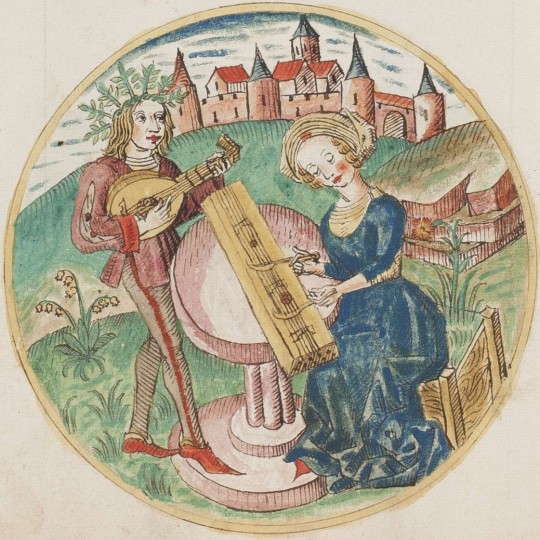

the four temperaments: choleric, sanguine, phlegmatic, melancholic
in an astrological-astronomical miscellany, alemmanic german, c. 1500
source: Wolfenbüttel, Herzog August Bibliothek, Cod. Guelf. 8.7 Aug. 4º, fol. 125r-126v
724 notes
·
View notes
Text
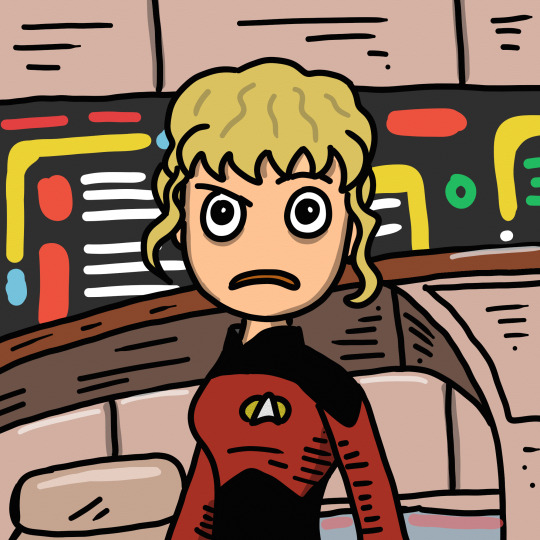
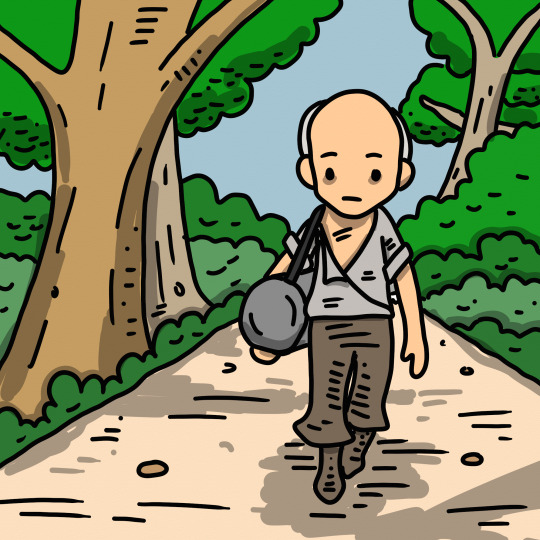
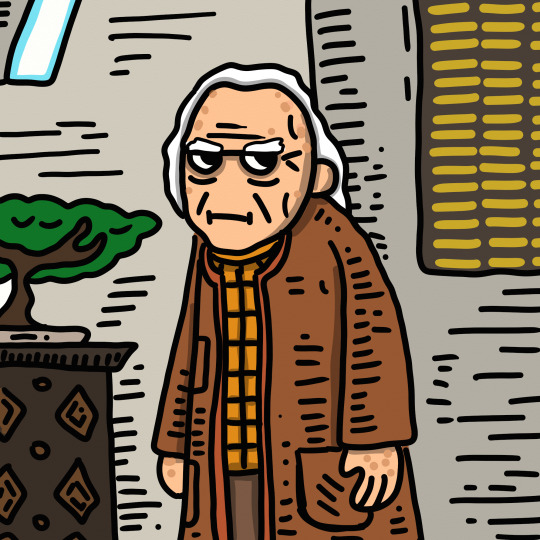






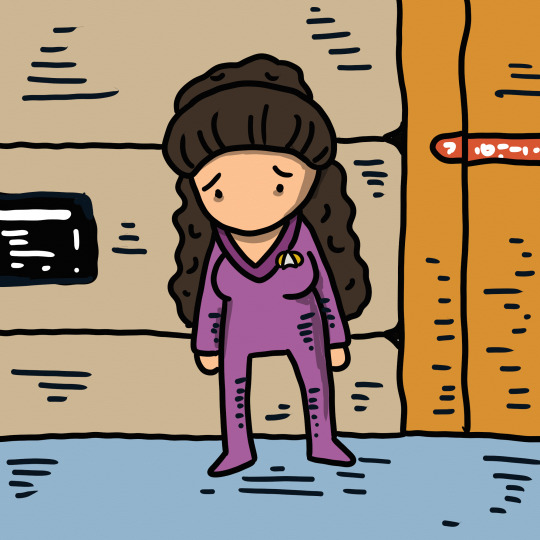
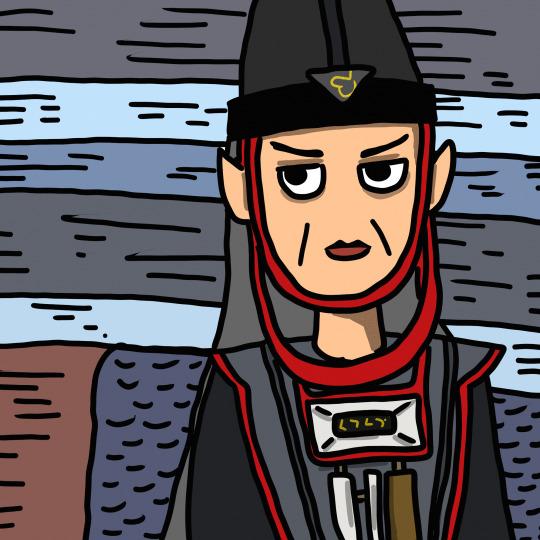






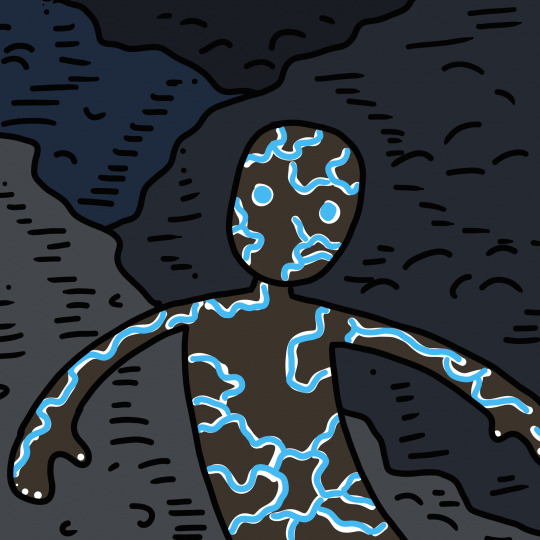

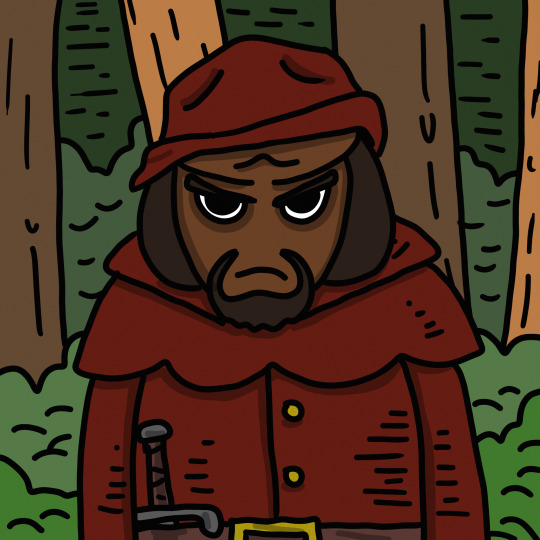
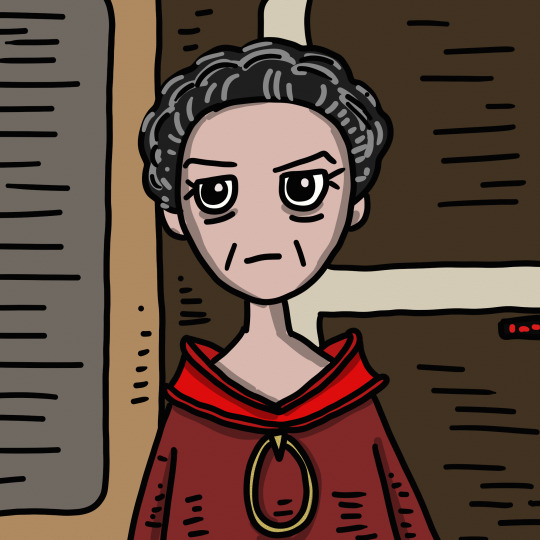





Li'l TNG - Season 4
It's so nice revisiting these :)
340 notes
·
View notes
Text
'Unusual' ancient graves found near Arctic, but no remains discovered inside, study says
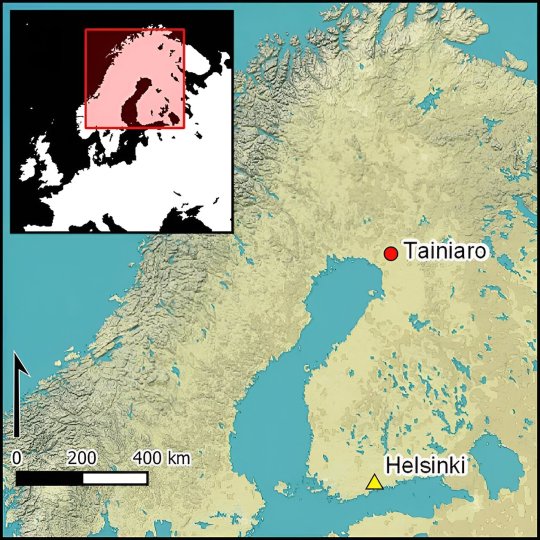
Just south of the Arctic Circle, within the vast forests of northern Finland, lies a sandy field dotted with dozens of "unusual" pits.
Workers stumbled upon the site, known as Tainiaro, six decades ago, and since then, its origins have remained elusive.
But now, upon conducting a comprehensive analysis of the site, researchers have determined it is likely a sprawling hunter-gatherer cemetery dating back some 6,500 years, according to a study published on Dec. 1 in the journal Antiquity.
"Such a large cemetery at such a high northerly latitude does not necessarily fit preconceptions about prehistoric foragers in this region," researchers affiliated with Finland's University of Oulu said, adding it may be time to "recalibrate our expectations." Read more.
908 notes
·
View notes
Text
In terms of [French] soldiers, the habit of being tattooed appears to have been well established by the time of the Revolution. […] Another veteran of the [First French] Empire, with twelve campaigns and fifteen wounds to his name, was given a medical examination and was found to have VIVE LE ROI (’Long live the king’) tattooed on his right forearm. For political expediency, the veteran quickly had this tattoo amended to read VIVE LE RÔTI (’Long live roast meat’).
- Napoleon’s Infantry Handbook, Terry Crowdy
9K notes
·
View notes
Text
Coming this winter:
Sic et Non: The Epic Roleplaying Experience
72 notes
·
View notes
Photo
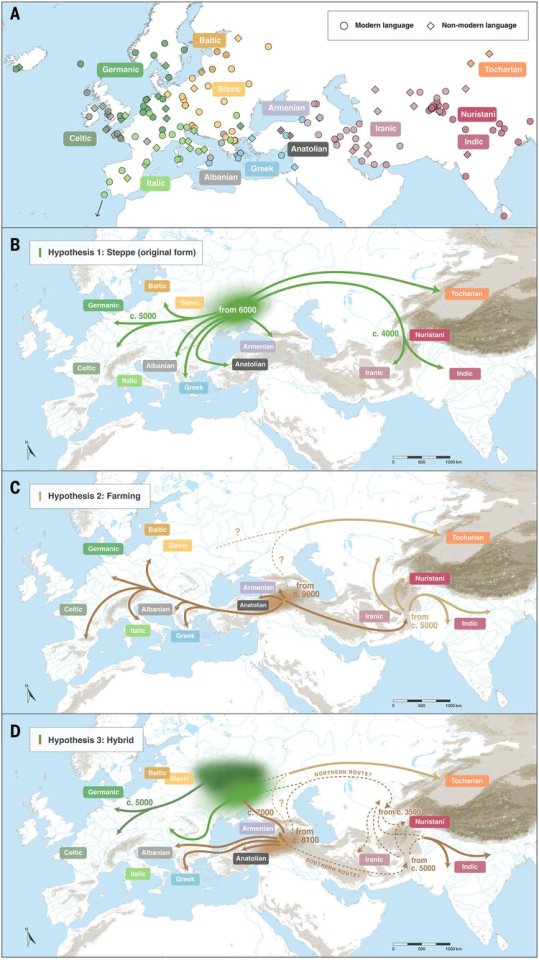
Indo European migrations by Bayesian phylogenetic analysis from Max Planck University.
Language trees with sampled ancestors support a hybrid model for the origin of Indo-European languages
Languages of the Indo-European family are spoken by almost half of the world’s population, but their origins and patterns of spread are disputed. Heggarty et al. present a database of 109 modern and 52 time-calibrated historical Indo-European languages, which they analyzed with models of Bayesian phylogenetic inference. Their results suggest an emergence of Indo-European languages around 8000 years before present. This is a deeper root date than previously thought, and it fits with an initial origin south of the Caucasus followed by a branch northward into the Steppe region. These findings lead to a “hybrid hypothesis” that reconciles current linguistic and ancient DNA evidence from both the eastern Fertile Crescent (as a primary source) and the steppe (as a secondary homeland). —SNV
246 notes
·
View notes
Text
your fictional boy toy is just pixels. not mine tho mine is real and he's on my bed watching me blog giggling and kicking his legs in the air
22K notes
·
View notes